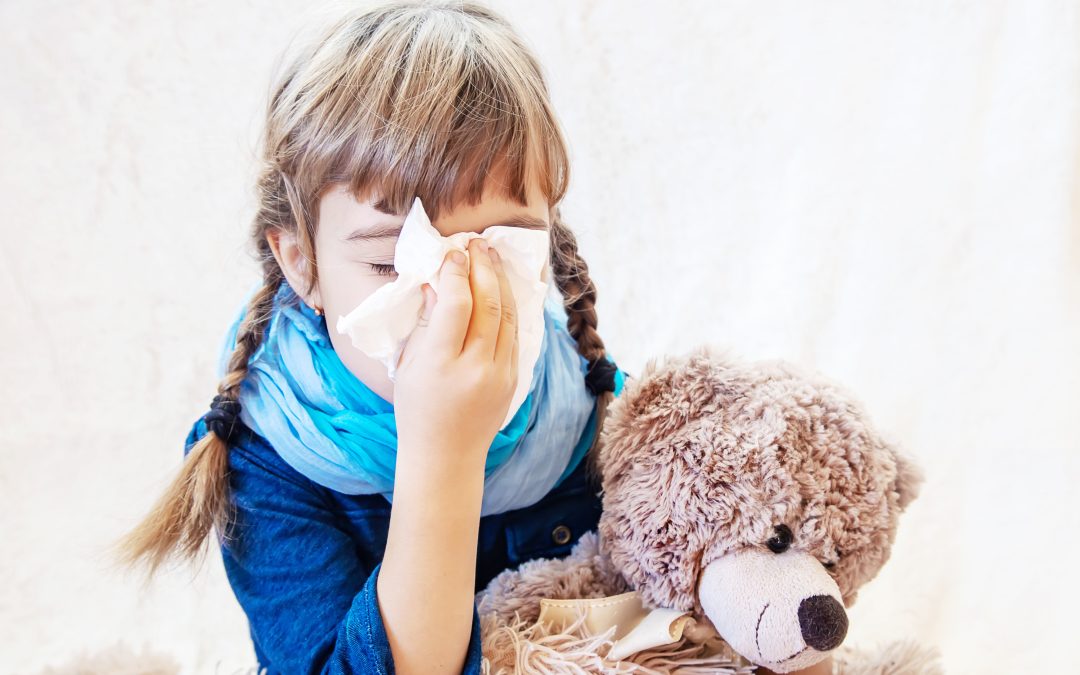It’s winter in Phoenix, which means everyone is out enjoying the beautiful weather conditions and taking a much-needed break from the warmer temperatures. Unfortunately, it’s also cold and flu season. Keeping our children safe and healthy is more crucial now than ever before.
Here are a few tips to prevent winter colds that can keep you and your family healthy and happy.
Tips for Prevention
Wash hands frequently.
The key to this is remembering to wash hands anytime you shift activities. For example, before and after eating, after using the bathroom, or coming in from playing. Children often touch their faces, so we want to ensure their hands are as clean as possible. Alcohol-based hand sanitizer is a great alternative when out and about.
Don’t forget to make it fun! Have your child wash their hands with soap and warm water and sing “Happy Birthday” twice or the ABC song to achieve the goal of a 20-second hand scrub.
Add moisture to the air.
While we always recommend a humidifier once your little one is battling congestion, in dry climates such as Arizona, a humidifier is really a wintertime must-have. Dry air only exacerbates the symptoms of a cold, so focus on increasing moisture in your child’s room to help with sore throats and stuffy noses.
Saline is your friend.
Once again, the dry air can only make your child’s stuffy nose even more uncomfortable. To help alleviate this, use nasal saline drops or spray to help loosen the mucus. This can be used on infants, as well, along with the use of a nasal aspirator or bulb syringe to remove mucus for babies that are not yet able to blow their noses. Doing this will allow your child to breathe, eat, and sleep much more comfortably.
Stay active.
Being and staying active, whether it be indoors or outdoors, is essential to maintaining a healthy immune system. Take a trip to your local park, go for a walk around your neighborhood, enjoy a scenic hike, or get creative and make an obstacle course at home made up of things you already have around the house. Just keep those little bodies moving!
Eat a whole-food diet.
It has been said that “food is medicine.” Truly, what you put into your body matters and can make the difference between whether or not your immune system is strong enough to ward off pathogens. Focus on real, whole food that is rich in nutrition. Think seasonal fruits and vegetables, whole grains, and healthy fats. What we put into our bodies directly impacts how we feel. Let’s help our children to feel their best.
Keep them (and yourself) hydrated.
Hydration is critical in maintaining health. Our children’s mood, memory, and attention are all impacted by the amount of water consumed. From proper blood circulation to bone, joint, and teeth health – water is a safe, accessible choice that impacts every aspect of overall health. Dehydration is more common in sick children, so be sure to increase water intake when you think your child is battling a cold. You can locate the American Academy of Pediatrics (AAP) recommendations on water intake by age here.
Parents – don’t forget to keep yourself hydrated, too! Dehydration can impact all of us and when you’re busy taking care of kids, it becomes easy to forget about your needs.
Get your sleep.
When sleep is compromised, so is your child’s immune system. Kids require anywhere from 9 to 14 hours of sleep per day. Less than usual sleep becomes an opportunity to weaken your child’s immune system. Do your best to maintain a regular routine and sleep schedule to help your children stay on track.
Avoid unnecessary germ contact.
In order to protect yourself and others from unnecessary germ sharing, there are a few measures that can be taken. This includes:
- Not sharing straws, cups, or utensils
- Keep hats and scarves to yourselves
- Avoid picking up used tissues
- Have regular disinfecting practices, especially in high-traffic areas
- Perform a sanitary cycle wash on clothes and bedding once your child is better
While prevention is always the goal, sometimes, our children get sick. It is important to keep them home to prevent the spread of the virus to others. Most of the time, there is no reason to bring your child to the doctor for a common cold.
However, the AAP encourages you to reach out to your pediatrician if any of the following occurs in your child over three months of age:
- Excessive coughing or wheezing
- Lips or nails turn blue
- Any breathing difficulties (e.g. if you see your child’s nostrils get larger with each breath; or if the skin above/below the ribs sucks in with each breath)
- Nasal mucus lasting longer than 10-14 days
- A temperature over 102 degrees Fahrenheit
- Ear pain
- Unusual fussiness or sleepiness
At Mercy Grace, we’re here to care for your whole family. Book an appointment online, via text, or call to speak to our staff.

